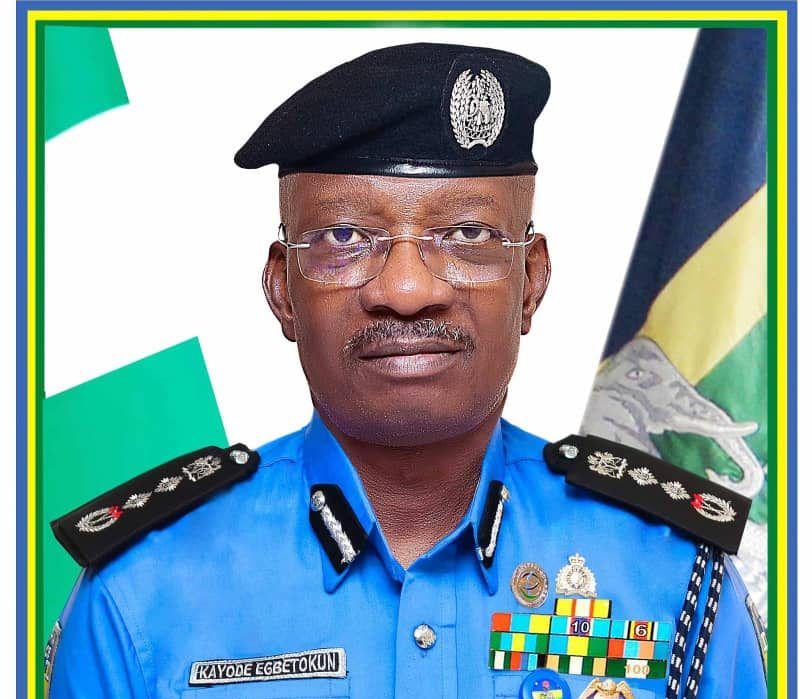…Corruption undermining policy decision making- ICPC
The Inspector-General of Police (IGP), Kayode Egbetokun has said the criminal justice in Nigeria is weak and sick.
Egbetokun who stated this on Thursday in Lagos State at the 2024 Annual Lecture/Award Ceremony charged Nigerians to revive the system.
The Force Public Relations Officer, ACP Olumuyiwa Adejobi who represented the IGP said people should stop blaming the police.
According to him, the police are not the only pillar or stakeholder in the criminal justice system in this country, saying “We have challenges, we accept, but we will try our best to make sure we have a better system.”
He said, “All of us must come together to help perfect criminal justice or justice system administration in Nigeria.
“The government has made the ACJA 2015 and other laws but the problem we always face is that we always confuse ourselves and we are full of sentiment.
“Cybercrime law has been there since 2015. The provision is there that if you say certain things online is an offence. Nigerians must know that an offence has been committed.”
On the #EndBadGovernance, Adejobi urged lawyers to stop confusing Nigerians on the issue of the arrested minors, saying there is a difference between a protester and a criminal.
He said anyone who is more than 7 years old can be charged to court and be prosecuted for committing the crime. “Thank God the President gave them pardon. We would have continued with the case”, Adejobi added.
Meanwhile, the Chairman, Independent Corrupt Practices Commission (ICPC), Dr Musa Aliyu, has said that corruption remains the most persistent challenge affecting all sectors and institutions of Nigerian society, undermining policy-decision making.
Aliyu, a Senior Advocate of Nigeria (SAN), said this while delivering a keynote address on, “Justice System Administration And Insecurity In Nigeria: Challenges, Opportunities And Solutions,” at the 2024 Annual Lecture/Award Ceremony organised by the CRAN in Lagos.
He said that he was happy to be x-raying the multi-faceted challenges faced by the Justice systems administration and the security sector in Nigeria.
The Chairman highlighted the prospects of implementing behaviour change and imbibing a corruption prevention attitude to achieve effectiveness, efficiency and transparency in the sectors.
“Corruption remains one of the most persistent challenges affecting all sectors and institutions of the Nigerian society, undermines policy-decision making, resource mobilisation and utilisation, policy execution and service delivery.
“Our experience at the ICPC in partnership with key stakeholders, has shown that tackling corruption effectively, across sectors and institutions, requires a proactive, multi-faceted approach. This approach should focus not only on enforcement but also on prevention, deterrence, and systems reform,” he said.
Aliyu pointed out that the Justice System Administration faces institutional, funding, infrastructural, human resources, and socio-cultural challenges.
He noted that of all these, insufficient budgetary allocation hinders the effective functioning of the justice system, leading to inefficient court administration, poor management of court processes, inadequate record-keeping, and lack of technological support was most affecting.
“The widespread corruption within the justice system, including bribery, influence peddling and attitudinal challenges are more fundamental and daunting.
“I dare say that the justice sector remains a focal point of concern, particularly regarding bribery involving stakeholders in the justice sector, and despite limited public contact, judicial officials exhibit relatively high bribery prevalence, hence the need for targeted anti-corruption measures in this sector,” he said.
Aliyu further noted that there was a limited adoption and use of technology, such as electronic filing and digital record-keeping, which at this time and age, was a sad commentary on the justice system administration.
He said there was a challenge of inadequate court infrastructure, as indicated by outdated and poorly maintained court buildings, inadequate seating, and insufficient facilities.
“With this scenario, if nothing else, morale is affected and service delivery is impaired,” said added.
The chairman also noted the challenge of inadequate prison facilities, which was causing overcrowding, poor sanitation, and inadequate healthcare in prisons.
“The sore point is that inmates of Nigerian prisons hardly get corrected, reformed or subsequently rehabilitated,” he said.
Aliyu further maintained that the justice system is also faced with human resource challenges, which is a shortage of judicial officers and, an insufficient number of judges, magistrates, and others. (MNR).















